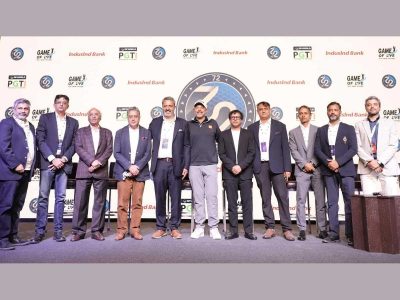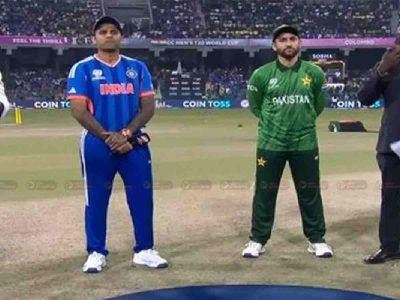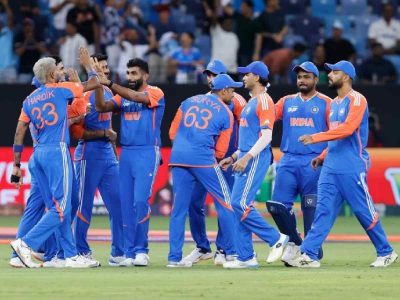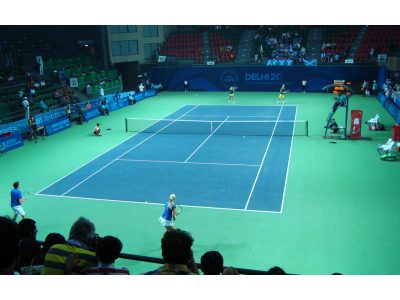The Delhi Half Marathon is being held on 29 November, in spite of the rise in Covid cases and recurring pollution, with hefty precautions. But runners are opposed to the idea
Delhi is now witnessing a surge in Covid cases, with a record 38,501 active current cases. On average for the last 20 days, the city has seen numbers in excess of 6,000 cases per day. These numbers make the capital one of the worst affected cities in the country.
Add to this the spike in air pollution levels in the past few days and running marathons doesn’t seem like a good idea. For the last 15 days, the average AQI has remained above 450, which is nine times above the permissible safe limit.
In this situation, markets have started to close down, the government is requesting against the gathering of people and regulations to control the spread of the virus have been made all the more stringent.
In spite of this double whammy of the virus and pollution, the 16th edition of the Airtel Delhi half marathon scheduled for 29 November will see one of the strongest line-ups in its history. Marathon world record holder Brigid Kosgei and Ababel Yeshaneh, World Half Marathon record holder will join the fray apart from defending champions Tsehay Gemechu and Andamlak Belihu.
Among Indians, Avinash Sable, Srinu Bugatha and Abhishek Pal will be in focus among the men while Parul Chaudhary, will lead the Indian women’s category along with Sanjivani Jadhav, Monika Athare and Chinta Yadav.
However, this time only the elite runners will be participating and common people are being encouraged to run from wherever they came and send the recorded distances via the Delhi Half Marathon app.
But in times of such a crisis is organising a marathon conducive for the city?
Procam International, the organisers of the event have made arrangements for a safe race.
“The Airtel Delhi Half Marathon will follow the highest level of safety standards, with bio-secure zones to ensure a Covid free race for the elite runners. All mandatory protocols in line with the advisory issued by the Government of India have been laid out for the event crew, vendors and suppliers, elite athletes, media and all guests”, reads a statement from Procam international
Bio Secure Zones have been made for Elites Athletes at Le Meridien, Event’s Hospitality Partner. At the Jawaharlal Nehru Stadium for Media, Television Crew and Guests and Dignitaries on Race Day. Entry to the Bio Secure Zones shall be restricted only to authorized personnel.
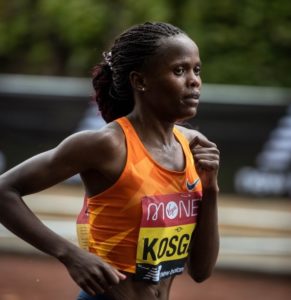
All members travelling to Delhi, including the international elites will carry a Covid negative test. There will be two rounds of tests before race day, to ensure complete safety and security of the athletes. The venue team shall also go through a round of tests before race day, to ensure everyone present at the venue is safe. Daily temperature checks, oximeters checks and Covid inspectors shall be designated to ensure that all protocols are followed.
Isolation areas will be set-up at the venue and a medical team from Max Hospitals – Medical Partner, shall ensure all necessary precautions and protocols are followed. Hand sanitizers shall be installed at specific entry points at the Jawaharlal Nehru Stadium.
Strict sanitisation steps shall be taken to ensure that from Friday onwards entry is restricted and isolated in the Bio Secured zones. Saturday shall be treated as an Isolation Day. Everyone will be subject to Temperature Checks and oximeter checks before entry.
The initiatives undertaken for the last few years at the Airtel Delhi Half Marathon proved their efficacy and the implementations have been continued this year.
Patented ecologically safe technology to be used: Low power-pulsed Wifi waves to be concentrated over the course to catalyse clearance of air pollutants primarily through dry deposition. Devic Earth’s Pure Skies technology uses pulsed Wi-Fi to safely and effectively reduce air pollution over large areas, typically by 50-60% outdoors.
The entire course is to be washed with ecologically safe reagents. The deployment schedule is being diligently followed and dust hot spots identified for extensive spraying.
But despite the measures, runners are concerned about the safety and well being. “We run long distances, and for the last couple of years, the pollution is any way restricting our runs”, says Karlygash Omurbayeva, a Russian runner who has been living in Delhi and participating in the half marathon for the past five years. “It is certainly not a good time to organise runs, especially since sporting events around the world are getting postponed or cancelled.”
“Yes, amateur runners are not participating, but with the launch of this app, they are encouraging people to come out of their homes and run, putting them at risk”, says professional runner Varun (name changed).
“Anyway a marathon involves heavy breathing, and breathing in this air, which contains both pollutants and a deadly virus at its peak, involves a lot of risks”, he adds.
An official at Procam International says that the event is essential for their calendar, as it generates a lot of revenue. “We gather a lot of sponsors especially for this event, and cancelling is not an option as the stakes of our sponsors, and even our company will be at a loss”, says the official on condition of anonymity.
(Cover: RISKY RUN: The 2019 Delhi half marathon happened in spite of the pollution PHOTO: Getty Images)


